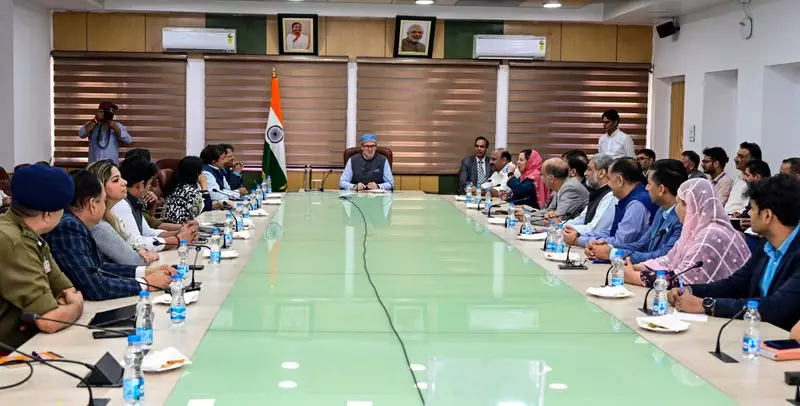
In a scathing revelation that has sent shockwaves through political circles, former Jammu and Kashmir Chief Minister Omar Abdullah has exposed the Bharatiya Janata Party's glaring double standards on dynastic politics. The National Conference leader pulled no punches in highlighting how the BJP publicly condemns family-based politics while actively practicing it within their own organization.
The stunning expose comes at a time when political parties across India are grappling with accusations of nepotism and family dominance. Abdullah's comments have ignited a fresh debate about political transparency and consistency in Indian democracy.
The Core Contradiction
Omar Abdullah pointed to numerous examples where BJP leaders have facilitated political positions for their family members, despite the party's vocal criticism of the same practice in opposition parties. "The BJP has no qualms about dynastic politics within their own party, yet they use it as a weapon to target others," Abdullah stated emphatically.
This contradiction, according to political analysts, represents one of the most significant credibility gaps in contemporary Indian politics. The party that positions itself as a crusader against family-dominated politics appears to be following the same playbook it condemns.
Political Fallout and Reactions
The timing of these revelations is particularly significant as India approaches crucial state elections. Abdullah's statements have:
- Forced political commentators to re-examine BJP's anti-dynasty narrative
- Sparkled debates about political hypocrisy across party lines
- Raised questions about the genuine commitment to meritocracy in politics
- Highlighted the need for consistent political standards
Political observers note that this exposure could potentially reshape public perception about which parties actually practice what they preach when it comes to political appointments and family involvement in politics.
Broader Implications for Indian Democracy
The dynastic politics debate touches upon fundamental questions about political representation and opportunity in the world's largest democracy. Abdullah's allegations suggest that the anti-dynasty rhetoric might be more about political convenience than genuine ideological commitment.
As the political landscape continues to evolve, voters are increasingly demanding transparency and consistency from their elected representatives. This latest controversy adds fuel to the ongoing discussion about whether Indian politics is truly moving away from family-dominated structures or simply repackaging them.
The coming weeks will reveal how this exposure impacts political narratives and whether it leads to any substantive changes in how parties approach internal appointments and political family involvement.






